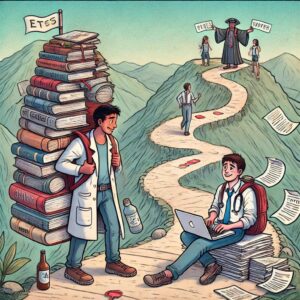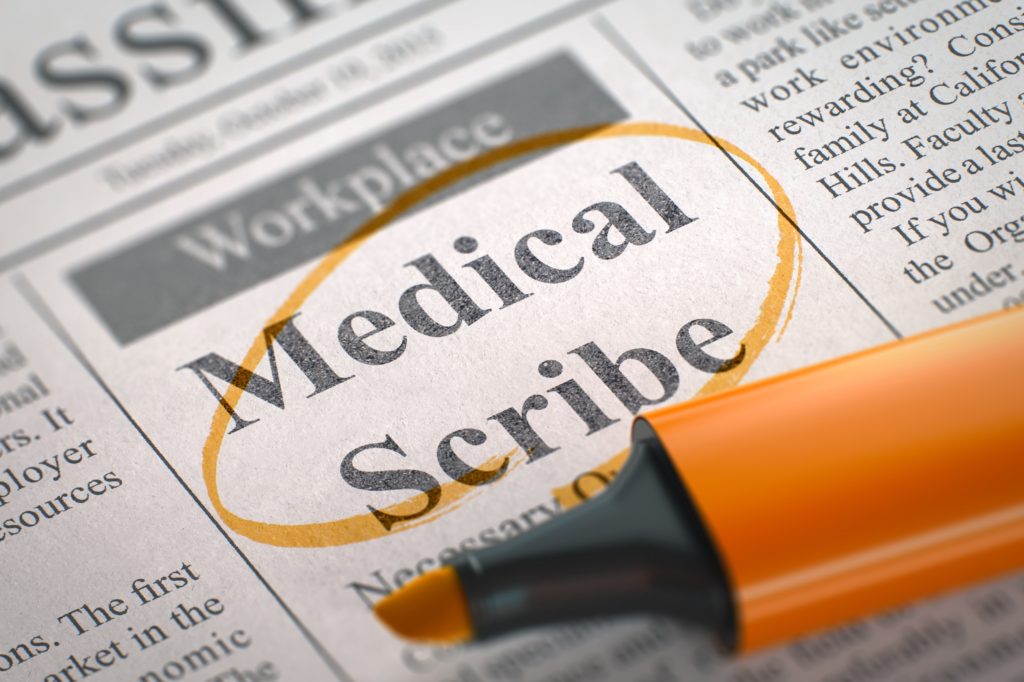
Here at Gurufi, we spend much of the late summer and early fall working with hundreds of clients to perfect their medical school secondaries. In my experience, at this point, applicants are quite exhausted by the immense work it takes to get to this point: studying for and taking the MCAT, getting letters of rec, completing your prerequisite courses, supplementing your clinical experience, completing the AMCAS, and ironing out your personal statement and Word & Activities sections. Now, you must complete a dozen or more additional school-specific essays. This naturally leads people to wonder how they can complement their existing materials in ways that maximize the value and impact of their secondaries. This post seeks to help you craft powerful secondary essays.
Secondary essays provide an opportunity to showcase your unique qualities, experiences, and motivations that make you a suitable candidate a specific medical school. Crafting effective secondary essays requires thoughtful reflection and a strategic approach. Here’s how to respond to common secondary essay prompts and tailor your responses for different schools:
1. Understand the Purpose of Secondary Essays
Secondary essays allow admissions committees to learn more about you beyond your primary application. Moreover, because the admission committees of particular schools craft these essays, they reflect questions that the AdCom obviously cares about. They are designed to assess your fit for the specific program, your alignment with the school’s values, and your readiness for the challenges of medical school. Understanding this purpose will help you craft essays that effectively convey your qualifications and aspirations.
2. Research Each School Thoroughly
Before writing your secondary essays, conduct thorough research on each medical school you are applying to. Understand their mission, values, curriculum, and unique features. Familiarize yourself with their specific programs, faculty, research opportunities, and community involvement. Talk to people at the school, including both faculty and staff if you can. This research will enable you to tailor your responses to align with the school’s specific expectations and culture.
3. Address Common Secondary Essay Prompts
While each school may have unique prompts, some common themes often appear in secondary essays. Here are strategies for responding to these common prompts:
a. Why This School?
This prompt asks you to explain why you are interested in attending that particular medical school. Be specific and detailed in your response. Highlight aspects of the program that resonate with your career goals and interests. Mention unique opportunities, such as specific research programs, clinical experiences, or community service initiatives, that make the school a good fit for you. Demonstrating a genuine interest and thorough knowledge of the school will strengthen your response.
One thing to beware of is writing a “school brochure” where you simply list a series of things that you like about the school. This doesn’t show much more than that you have access to Google. If you can explain in depth, using examples from your past, a few things really well, that is much better than mentioning a bunch of things. As with personal statements, saying one or two things really well is better than saying a bunch of things poorly.
b. Describe a Challenge You’ve Overcome
This prompt seeks to understand your resilience and problem-solving abilities. Choose a significant challenge you have faced, either personally or professionally. Describe the context, the actions you took to address the challenge, and the lessons you learned from the experience. Focus on how the experience has prepared you for the rigors of medical school and a career in medicine.
c. Diversity and Inclusion
Many medical schools value diversity and seek to understand how you will contribute to a diverse and inclusive community. Reflect on your background, experiences, and perspectives that contribute to your unique identity. Discuss how your experiences with diversity have shaped your worldview and how you plan to promote inclusivity in medical school and your future career.
d. Significant Research Experience
If you have significant research experience, this prompt allows you to highlight your contributions to scientific knowledge. Describe your research project, your role, and the impact of your findings. Explain how this experience has influenced your interest in medicine and your future career goals. Emphasize any skills you developed, such as critical thinking, data analysis, or teamwork.
There are three additional points that I’d make with this prompt. First, writing about science can be hard. It’s difficult to balance accuracy, clarity, and complexity. As such, this is among the most difficult kinds of admissions writing and you may want to think about getting help with someone experienced and adept with this. (like Gurufi! ) Second, think about how you view the role of science and research as you move forward. Do you (be honest) intend to continue doing research in and beyond medical school? If so, think about including this, even if briefly, in your essay. Lastly, also think about your research experience in the same way that you wrote about an important job in your Work & Activities section: did you grow, improve, receive additional responsibilities, or earn a promotion?
- Professional Goals and Aspirations
This prompt asks you to articulate your career goals and how the medical school will help you achieve them. Be clear and specific about your short-term and long-term goals. Explain how the school’s resources, faculty, and curriculum align with your aspirations. Demonstrating a clear vision for your future and how the school fits into that vision shows that you are focused and motivated.
4. Tailor Your Responses
Tailoring your responses for each school is essential to demonstrate your genuine interest and fit. Use the research you conducted to incorporate specific details about the school into your essays. Mention faculty members you are excited to work with, unique programs that align with your interests, and community initiatives that you want to be part of. Personalizing your essays shows that you have a sincere interest in the school and have thoughtfully considered how it aligns with your goals.
5. Be Authentic and Reflective
Authenticity is key to crafting compelling secondary essays. Be honest about your experiences, motivations, and aspirations. Reflect on your journey and share meaningful insights that provide a deeper understanding of who you are. Avoid generic statements and clichés. Instead, focus on specific examples and personal stories that illustrate your points.
6. Show, Don’t Tell
I’m sure you’ve heard this before. I don’t love “show, don’t tell” as a piece of advice because it doesn’t feel actionable. You can get to the same idea by saying “tell a story and let the story demonstrate your traits.” Not as punchy, but more accurate. For example, instead of simply stating that you are passionate about medicine, provide examples that demonstrate your passion. Describe experiences that have solidified your commitment to the field and the actions you have taken to pursue your interest. This approach makes your essays more vivid and memorable.
If you need help with storytelling, check out this video. It was made for MBA applicants, but all of the core ideas apply to medical school applications. This other video also provides a useful way to attack the “show don’t tell” problem.
7. Edit and Revise
Writing effective secondary essays requires multiple drafts and revisions. After writing your initial draft, take a break and then revisit your essay with fresh eyes. Seek feedback from mentors, peers, or professional consultants to gain different perspectives. Revise your essays to improve clarity, coherence, and impact. Pay attention to grammar, spelling, and punctuation to ensure your essays are polished and professional.
BUT, do be judicious with who you send your essay to. Too many chefs spoil the broth.
Crafting effective secondary essays for medical school applications involves understanding the purpose of these essays, conducting thorough research, addressing common prompts thoughtfully, and tailoring your responses to each school. By being authentic, reflective, and detail-oriented, you can create compelling essays that resonate with admissions committees and enhance your chances of acceptance. Good luck with your applications!
For more help with your personal statement, check us out at Gurufi.com. Our personal statement editors and consultants have decades of experience helping clients get into top medical schools. Our specialty is helping you craft compelling personal statements that move the needle in your admissions process! For questions, shoot us an email at service@gurufi.com. Check us out on Facebook, Twitter, and LinkedIn.



